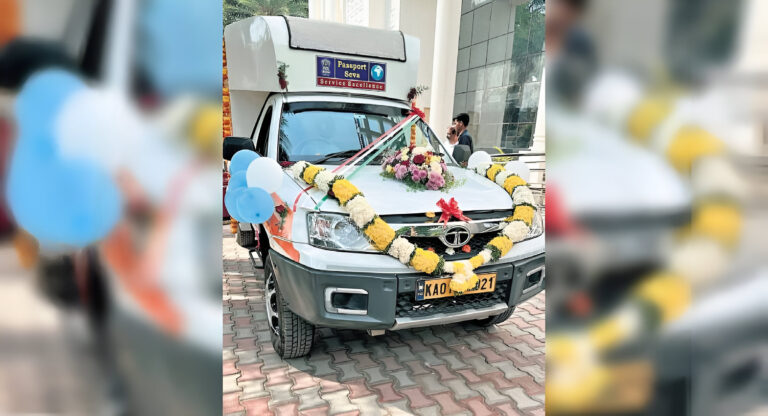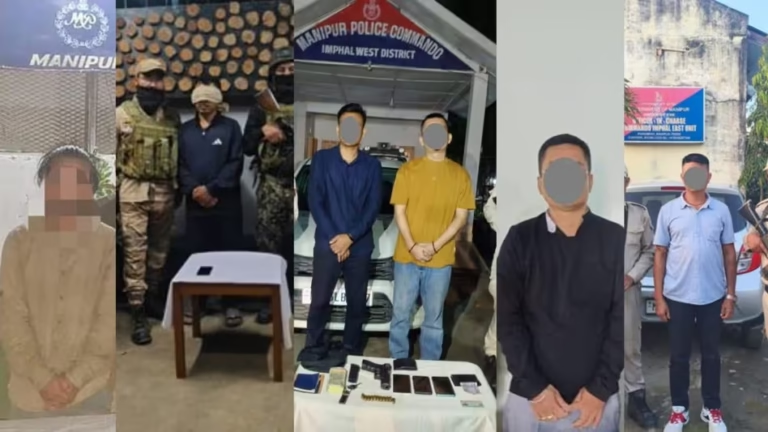Manipur’s Proscribed Groups Call for 12-Hour General Strike on October 15
Summary
On October 15, 2024, various proscribed groups in Manipur have called for a 12-hour general strike. These groups, considered illegal by the government, are protesting policies and actions they claim undermine indigenous rights and interests. The strike is expected to disrupt daily activities across the state, with businesses, educational institutions, and transportation likely to be affected. The government has called for calm, while security forces remain on high alert to prevent any untoward incidents.
Introduction: A State on Edge
Manipur, a state rich in history and culture, has also been a region simmering with political tension. The latest chapter in this ongoing saga is a 12-hour general strike planned by various proscribed (banned) groups on October 15, 2024. The strike is not just a routine call for shutdown—it’s a symptom of deeper-rooted grievances that continue to shape the socio-political landscape of this Northeastern state.
These banned groups are calling for the strike in response to what they see as governmental policies that are not only ignoring but actively eroding the rights and identity of indigenous people. This is far from the first time Manipur has witnessed a general strike, but each one tells a story of unrest and dissatisfaction.
What Is a General Strike, and Why Is It Significant?
For many of us, the idea of a “general strike” might seem like an extreme measure, but in regions like Manipur, it’s almost a common occurrence. A general strike, often referred to locally as a “bandh,” involves the shutdown of all activities, from businesses to schools, and is a form of civil disobedience.
But why does it happen so often in Manipur? To understand this, we need to grasp the larger picture. Manipur has long been a hotbed of political unrest, where demands for autonomy, greater representation, and protection of indigenous rights clash with the broader frameworks of Indian governance.
Proscribed groups—outlawed organizations—play a significant role in these protests. Although these groups are declared illegal by the Indian government due to their secessionist or violent activities, they continue to hold sway over certain segments of the population.
Why the 12-Hour Strike?
This particular strike on October 15 is being organized by various proscribed groups, many of which have consistently opposed the policies of the Indian government in the region. According to reports, the strike is being called as a protest against multiple issues, including:
- Indigenous Rights: The core issue for many of these groups is the protection of indigenous rights. Manipur is home to various ethnic communities, and there is a deep sense of fear among some that their cultural identity and land rights are being encroached upon by outsiders or government policies.
- Autonomy and Self-Determination: Several proscribed groups have long called for greater autonomy or even outright independence from India. They argue that their people deserve the right to self-determination, free from what they perceive as the heavy-handedness of the central government.
- Military Presence: The Armed Forces (Special Powers) Act (AFSPA) continues to be a bone of contention. This act gives the military sweeping powers in “disturbed” areas like Manipur. Many local groups feel that AFSPA leads to human rights violations and exacerbates the situation rather than improving security.
- Developmental Issues: Beyond political grievances, there is also frustration over what many perceive as neglect in terms of economic development. Infrastructure projects, job opportunities, and access to essential services remain a challenge in many parts of the state.
Impact of the Strike on Daily Life
As with most strikes in Manipur, the October 15 bandh is expected to bring life to a standstill. Transport, including buses and taxis, will likely be off the roads. Schools and colleges are expected to shut down, and markets may remain closed. People who rely on daily wages, such as laborers, could be hit hard by the disruption. Hospitals and emergency services, however, may continue to operate under protection from security forces.
Such strikes can be a double-edged sword. While they do draw attention to the grievances of the groups organizing them, they also cause significant inconvenience to ordinary citizens, many of whom may not directly support the groups’ demands. In recent years, there has been growing criticism from sections of society that want to see peaceful and constructive dialogue rather than frequent disruptions to daily life.
The Role of Proscribed Groups in Manipur’s Political Landscape
The term “proscribed groups” refers to organizations that have been banned by the government for their activities, which often include militancy or secessionist movements. In Manipur, these groups have played a significant role in shaping the political landscape for decades.
Groups like the United National Liberation Front (UNLF), People’s Liberation Army (PLA), and Kangleipak Communist Party (KCP) have long been at odds with the Indian government. While their influence has waned in recent years due to crackdowns by security forces, they still wield considerable power, particularly in rural areas.
For these groups, the strike is a way to assert their relevance and continue their struggle against what they see as systemic oppression by the Indian state. However, their methods, which often include violence and disruption, have also alienated many ordinary people who yearn for peace and stability.
Security Preparations for the Strike
Whenever a general strike is called by proscribed groups, security becomes a primary concern. The government is not taking this upcoming strike lightly, especially given the potential for violence. Security forces are likely to be on high alert, with additional personnel deployed to sensitive areas to prevent clashes or attacks.
Checkpoints and patrols will likely be set up across major towns and highways to ensure that law and order are maintained. Past strikes have sometimes been marked by incidents of violence, including clashes between protestors and police, attacks on government installations, and disruptions to essential services.
The Larger Picture: What’s Next for Manipur?
The upcoming strike is just the latest chapter in a long history of unrest in Manipur. While the grievances of the groups calling the strike are real and deeply rooted, the question remains: is disruption the best way to address them?
Many in the state are calling for a more constructive approach, one that involves dialogue and cooperation between the government and various stakeholders. After all, while strikes and protests may draw attention to issues, they don’t necessarily solve them. What Manipur needs is sustainable, long-term solutions that address the root causes of discontent—whether it’s political autonomy, economic development, or the protection of indigenous rights.
For now, however, the people of Manipur will be bracing themselves for another day of uncertainty as they wait to see what impact the October 15 strike will have.
FAQs
- What is the reason for the 12-hour strike in Manipur?
- The strike is being called by proscribed groups in protest of government policies, indigenous rights, and issues related to autonomy and the military presence.
- How will the strike affect daily life in Manipur?
- Most businesses, schools, and transport services are expected to be shut down during the strike, causing significant disruption.
- Who are the proscribed groups in Manipur?
- Proscribed groups include organizations like the United National Liberation Front (UNLF), People’s Liberation Army (PLA), and Kangleipak Communist Party (KCP), which have been banned by the government for their militancy and secessionist activities.
- What are the key demands of these groups?
- The groups are primarily focused on issues like greater autonomy, protection of indigenous rights, and opposition to the Armed Forces (Special Powers) Act (AFSPA).
- What security measures are being taken for the strike?
- The government has ramped up security, with additional forces being deployed to prevent any violence or disruptions during the strike.





